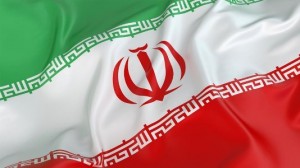 A former senior CIA official has hailed Irans growing role in the Middle East as a factor that heralds monumental shifts in geopolitical equations and settlement of regional issues.
A former senior CIA official has hailed Irans growing role in the Middle East as a factor that heralds monumental shifts in geopolitical equations and settlement of regional issues.In a Thursday article in The Huffington Post, Graham E. Fuller wriote: Dialog with Iran can help defuse Iraq's struggles. Iran could be part of the solution in Syria, rather than target of a proxy war. In Afghanistan, Iran has a greater stake in stability than the US does. Iran is a sworn enemy of Shi'ite-loathing al-Qaeda,
Fuller pointed to a virulent and destructive campaign by Saudi Arabia and other Arab monarchies to portray Iran as an all-purpose enemy for the US and noted that the scenario is basically aimed at justifying their resistance to political change.
Truth be told, the Iranian threat has been more about spread of Iran's popular revolutionary ideology to overthrow kings and US clients than it was about "Shi'ism," or even a bomb, the former CIA official pointed out.
He also praised the recent interim nuclear agreement between Iran and the Sextet of powers in Geneva as a signal step away from the obsessive centrality of Iran in US Middle East policies-- a hostile confrontation of thirty-five crippling years.
The analyst argued that the US obsession with its mentality about Iran distorted Washingtons view about a wide range of issues across the Middle East, including the Syrian crisis, the war on Iraq, Afghanistans crises, energy transfer routes, etc.
If we can now liberate our geopolitical imaginations a bit, we might perceive the outlines of a new Middle East emerging, he said.
The article touched on Iran and Turkey as two Middle Eastern powers with stable progress in political and economic spheres and lauded the two countries achievements in promoting their national democratic systems.
By Press TV
The Iran Project is not responsible for the content of quoted articles










